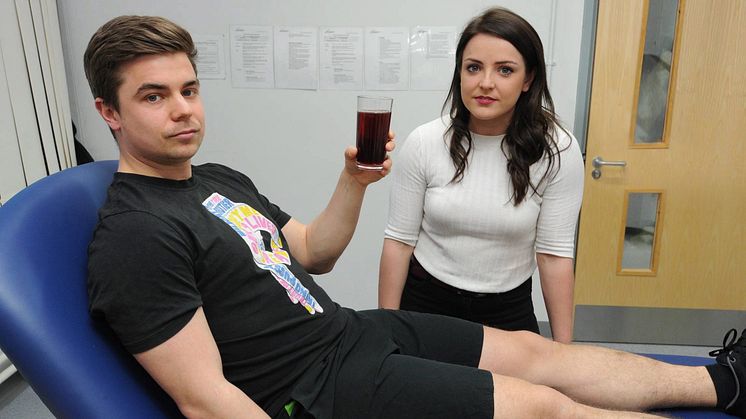
Press release -
Experts’ pioneering research examines exercise referral schemes
People who have been referred to exercise referral schemes who smoke, are younger* and have more serious and complex health conditions are more likely to drop out before completing the scheme according to pioneering research carried out by Northumbria University, Newcastle.
Experts have carried out research into exercise referral schemes examining dropout rates, reasons why people have been referred to the scheme, what patients see as the barriers to exercise and to what degree these could lead to drop out rates of patients being predicted.
Exercise referral schemes are used widely by the NHS and local authorities to promote physical activity in people who are at risk of, or who have developed, health conditions associated with a sedentary lifestyle. Up to 89% of primary care organisations nationally run the schemes which typically last for 10-12 weeks. Patients are referred by their GP or other healthcare professional.
Researchers analysed data on 6,796 patients referred to South Tyneside Council’s exercise referral scheme between April 2009 and April 2014. The scheme was delivered in collaboration with the Council, South Tyneside NHS Foundation Trust and South Tyneside Primary Care Trust.
The scheme lasted 12 weeks, with patients having a consultation before they started the programme and follow up consultations at six and 12 weeks. The first consultation included input from an exercise professional and nutritionist, after which they received a tailored exercise plan to help them increase their physical exercise. This varied in types and frequency of exercise depending on the individual’s need. Sessions were typically gym based but could offer pool based sessions for individuals who would benefit from non-impact exercise.
During the consultations patients were asked to identify possible barriers to increasing their physical exercise. These were lack of time, cost, lack of motivation, lack of confidence, lack of support, childcare, transport, illness/disability, not enjoying exercise and disability status.
The study found that in line with previous studies, 50% of patients did not complete the 12-week programme with most (37.8%) dropping out within the first six weeks.
It also found that patients who smoked, are younger and have moderate to high comorbidities (one or more additional diseases/disorders) were more likely to drop out of the scheme, whereas patients who are older or reported barriers of a lack of time, motivation or childcare were actually less likely to drop out. Patients referred by hospitals were also less likely to drop out than those referred by their GP/primary care.
The research also recommended further investigation into why these patients are more likely to drop out and what can be done to increase their participation.
Dr Nick Caplan, associate professor of Musculoskeletal Health and Rehabilitation and director of Postgraduate Research at Northumbria University said: “There have been a number of previous studies reporting on the completion rates of the schemes, but this is the first which looks at the reasons why participants are dropping out and if this can be predicted. As well as identifying participants who are more likely to drop out the research also shows that those who indicated a lack of time, motivation or childcare as potential barriers to increasing their exercise are actually more likely to finish the course.
“These findings require further research and in the second stage of our study we are interviewing participants to discover in more detail the reasons for not completing the course as well as interviewing those who were more likely to finish the course to see what lessons can be learned. We hope this will lead to recommendations which could lead to more patients finishing the schemes locally and across the country. I would like to thank South Tyneside Council for their full support in carrying out the research.”
Dr Glen Rae, clinical lead at Sunderland Integrated Musculoskeletal Service (IMS), run by South Tyneside NHS Foundation Trust, said: “Here at South Tyneside NHS Foundation Trust we appreciate the opportunity to work with Northumbria University, South Tyneside Council and other community services to help improve the health of patients in our region.
“Treating patients with musculoskeletal problems such as joint, muscle and ligament conditions can greatly benefit from a comprehensive exercise service so the first part of research undertaken was to review patients using the current exercise service in order to understand how we can play a role in improving the overall care and engagement of our patients. South Tyneside NHS Foundation Trust not only offers medical care within the hospital setting but also within the community in South Tyneside and Sunderland.”
The average age of those completing the exercise referral scheme was 51 years of age, whereas the average age of those dropping out of the scheme was 45.7 years.
For more information about Sunderland Integrated Musculoskeletal Service (IMS), visit www.sunderlandims.co.uk
Topics
Categories
Northumbria is a research-rich, business-focused, professional university with a global reputation for academic excellence. To find out more about our courses go to www.northumbria.ac.uk
If you have a media enquiry please contact our Media and Communications team at media.communications@northumbria.ac.uk or call 0191 227 4571.











